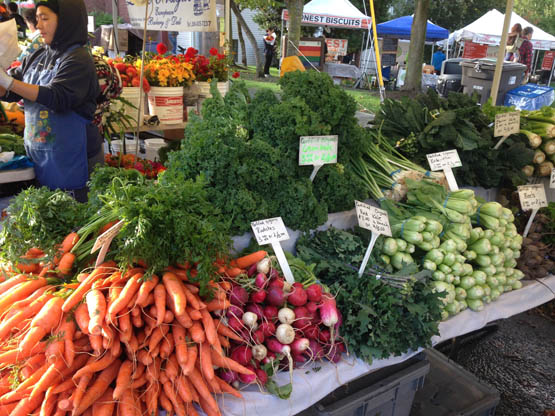Four students from the University of Washington worked with King County Department of Natural Resources to conduct a study about food. This partnership was created through the Local Food Initiative, which came into effect June 2014 as King County’s goal to strengthen our local food system. As part of this initiative, King County plans to bolster the local food and farm economy and increase access to healthy foods. The students fit into this work with their project to assess the demand of culturally appropriate foods for East Africans in King County. Their project aimed to determine the demand for fresh fruits and vegetables and then explore if local farmers could meet it with local produce supply. They surveyed people at East African Community Services (EACS) and Fresh and Green Produce Market in Tukwila to determine the top ten fruits and vegetables that are demanded. The students interviewed the director of EACS and the manager of Fresh and Green Produce Market to gain a more in depth understanding of the types of food their Somali communities demand. The top ten fruits and vegetables determined by the survey were: apple, carrot, grape, strawberry, broccoli, potato, tomato, onion, spinach, and watermelon. From their interviews with four King County farmers, they learned that broccoli, spinach and other greens like lettuce grow very well in King County’s climate and soil, therefore there is potential to increase supply of these vegetables.

The students also interviewed Mohamud Yussuf of OneAmerica. This interview, supplemented by the interviews with the other two Somali key informants, provided extremely valuable insight into the project. While the student group had focused on fruits and vegetables, halal meats are a culturally appropriate food that also has potential to be raised and processed in King County. The group concluded that King County should consider creating a halal meat processing facility, as well as raising the livestock in King County. For fruits and vegetables, many people surveyed voiced a lack of fresh and quality produce in the supermarkets of South Seattle. The group recommends that King County look into strengthening the supply chain between local producers and super markets and small ethnic grocers in South Seattle. Lastly, farmers markets could provide one outlet for supplying local culturally appropriate foods, but extra effort needs to be taken to make farmers markets more accessible through pricing and language translation.
Carolyn Foster
Dani Gilmour
Schell Liu
Matt Wildey
Community, Environment, and Planning
Department of Urban Design and Planning
College of Built Environments
University of Washington
https://cep.be.washington.edu/










